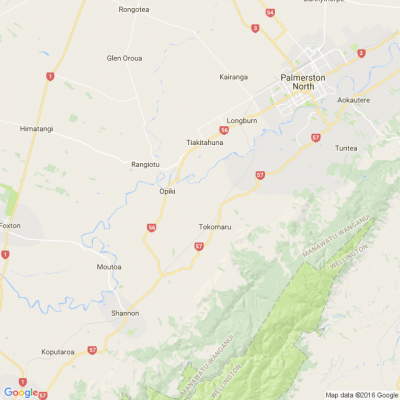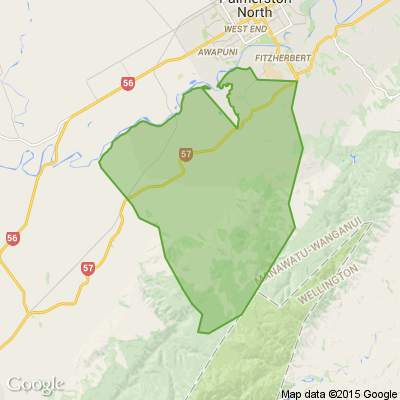
Know what’s happening
Access the private noticeboard for verified neighbours near you. Keep informed about any suspicious activity, send urgent updates to your neighbours when required and discuss emergency planning.
Get to know your neighbours
Browse the directory and start getting to know your neighbours. Don’t want to post to the whole neighbourhood? Send a private message.
Buy, sell and give away
Want to declutter your garage? Buy some used household items? Give away some garden stuff? Become a verified neighbour to browse and post items for sale. Trading is simple when everyone lives nearby.


Got a job going in your company or in your backyard?
Share it on Neighbourly to find someone local.

Thank you for using Neighbourly
You may receive an email confirmation for any offer you selected. The associated companies will contact you directly to activate your requests.
For only $15 a ticket, you could win this fully furnished home in South Island’s stunning Wānaka!
Worth over $1.5 million and built to perfection by Jennian Homes, this brand new abode features four bedrooms, two bathrooms and boasts a stylish open-plan kitchen, living and dining area for … View moreFor only $15 a ticket, you could win this fully furnished home in South Island’s stunning Wānaka!
Worth over $1.5 million and built to perfection by Jennian Homes, this brand new abode features four bedrooms, two bathrooms and boasts a stylish open-plan kitchen, living and dining area for year-round entertainment and comfort, plus incredible lake and mountain views!
Make this property your permanent residence, a holiday home, rent it or even sell it – it could be all yours for only $15! Be in to win by purchasing your tickets today.
Buy tickets

Paula from Tangimoana
Hi Neighbours, Tangimoana is having there 2 monthly Garage Sale this Sunday 2nd July 9-12. All very welcome!
If you are wanting a stall: Come along, bring your goodies, unpack and sell your goodies $5 per stall thats including a trestle table.
The heaters will be on, our smiles will be … View moreHi Neighbours, Tangimoana is having there 2 monthly Garage Sale this Sunday 2nd July 9-12. All very welcome!
If you are wanting a stall: Come along, bring your goodies, unpack and sell your goodies $5 per stall thats including a trestle table.
The heaters will be on, our smiles will be bright and your company will be most welcome. See you Sunday !!
Negotiable
Joy from Hokowhitu
Has had different uses. Have had wine racks in and also shelves for storage. Downsized and can’t fit it in.
Free
Stu from Aokautere - Fitzherbert
21" tv plus a aerial box excellent condition goes well hasn't been used for year txt 021 2644294
Price: $50
Paul from Levin
"I see you!" Harrier over HW1, Levin. Enlarge to see the eyes focused on you!

Paul from Levin
Reflections from Matakarapa Rd, Whirokino, near Foxton. Please enlarge for a better view.

Telecommunications Dispute Resolution
The internet is a wonderful thing. It’s how many of us work, study and play. It’s a
big part of how we do what we do every day.
So, when we have issues with our broadband, it can be frustrating. Without it, we
can feel lost.
Tried trouble shooting? Tried talking to your provider? Still … View moreThe internet is a wonderful thing. It’s how many of us work, study and play. It’s a
big part of how we do what we do every day.
So, when we have issues with our broadband, it can be frustrating. Without it, we
can feel lost.
Tried trouble shooting? Tried talking to your provider? Still stuck?
TDR can help you find your way. Visit www.tdr.org.nz to find out more.
Find out more

Stu from Aokautere - Fitzherbert
Fish finder only be used once excellent condition txt 0212644294 to view $1200 ono
Price: $1,200

Darren from Palmerston North Central
This would make a wonderful gift.
Tarot card book and cards, tarot card velvet bag, set of Chakra stones, tarot card tablecloth(47mm x 47mm) all in an mdf handmade box by myself
Box measures 250mm Lx 178mm W x 60mm H.
Unfortunately I can only add 5 photos max. Should you want to see the tarot table… View moreThis would make a wonderful gift.
Tarot card book and cards, tarot card velvet bag, set of Chakra stones, tarot card tablecloth(47mm x 47mm) all in an mdf handmade box by myself
Box measures 250mm Lx 178mm W x 60mm H.
Unfortunately I can only add 5 photos max. Should you want to see the tarot table cloth you can find it the following link. If this doesn't work you can click on this link and scroll down to find it at facebook.com/CrystalsWoodandStone. It's the cloth image with the star signs on it
m.facebook.com...
free postage within NZ
Price: $110
Diane from Foxton
Good morning, Food pantries allow people to donate food and excess produce to those that need it. Something every community needs to have. Do we have any in the area?

Leslie from Foxton
HELP!..
I am having a problem with my 3d printer and really need some assistance. Is there anyopne out there could help. At the moment it has a heating overrun warning but i need assistance setting it up as i changed the print head from stock to a micro swiss dde. The printer is a CR10s pro.
Paul from Levin
Reflections on the Manawatu River at Wirokino. Please enlarge for better view.

The Team from Resene ColorShop Palmerston North
Transform assorted old brown cane furniture into Cape Cod classics using sandy-toned Resene neutrals and restrained blue accents.
Find out how to transform your own with this handy advice.

The Team from Neighbourly.co.nz
To all Business Owners, Neighbourly is here to help you keep connected with your neighbours, we’re offering Neighbourly Premium Business Listings FREE for three months.
You’ll feature in the local business directory and be able to post out to your surrounding suburbs once per week
… View moreTo all Business Owners, Neighbourly is here to help you keep connected with your neighbours, we’re offering Neighbourly Premium Business Listings FREE for three months.
You’ll feature in the local business directory and be able to post out to your surrounding suburbs once per week
T&Cs apply.
Get Premium now

 Loading…
Loading…
Are you sure? Deleting this message permanently removes it from the Neighbourly website.
 Loading…
Loading…

 Buyers $369,000+
Buyers $369,000+


 Marketed by Catherine Richardson
Marketed by Catherine Richardson

 By Negotiation
By Negotiation



 Marketed by Simon Davenport
Marketed by Simon Davenport

 Buyers $439,000+
Buyers $439,000+



 Marketed by Catherine Richardson
Marketed by Catherine Richardson

 Buyers $599,000+
Buyers $599,000+



 Marketed by Alison Kinghorn
Marketed by Alison Kinghorn

 Buyers $485,000+
Buyers $485,000+



 Marketed by Paul Lynch
Marketed by Paul Lynch

 Buyers $449,000+
Buyers $449,000+



 Marketed by Jude Challies
Marketed by Jude Challies

 $345,000
$345,000

 Marketed by Nikki Groves
Marketed by Nikki Groves
© Neighbourly 2026
